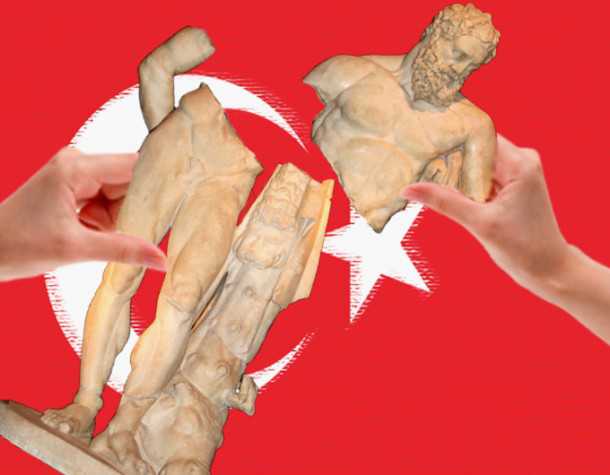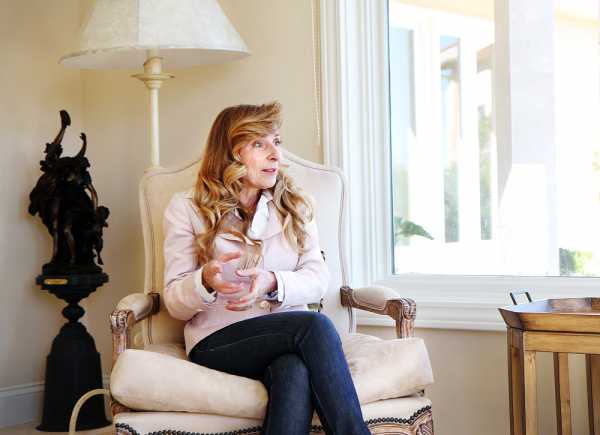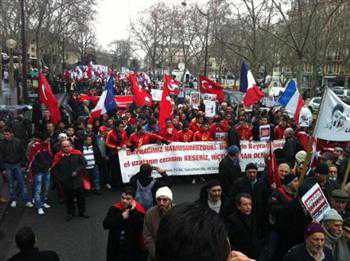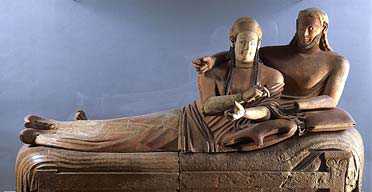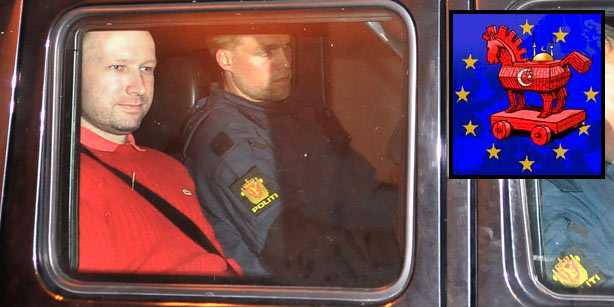Today, October 29, 2010, Turkish Americans and Turks around the world proudly celebrate the 87th anniversary of the establishment of the Republic of Turkey. The great visionary leader, Ataturk, felt in 1923, that it was not enough to only survive a war of independence but also to excel in all aspects of modern life by rising to the top in science, technology, education, medicines, energy, economy, tourism, sports, trade, defense, and others. Today, an emerging regional power and a new global player, Turkey, stands as a monument to Ataturk’s dreams. Turkish Americans salute the great Ataturk, his magnificent creation Turkey and the Turkish nation, as well as the global Turkish-Turkic realm, standing tall and strong in the face of many challenges and threats.
Below, please find the congratulatory messages of Obama, via Secretary Clinton, the Turkish Ambassador, and the president of ATAA, all located in Washington DC.
***
Hillary Rodham Clinton
Secretary of State
Washington, DC
October 28, 2010
ON BEHALF OF PRESIDENT OBAMA AND THE PEOPLE OF THE UNITED STATES,
I congratulate the people of Turkey on the anniversary of your founding this October 29.
In the 87 years since Mustafa Kemal Ataturk set out a new vision for the Turkish people, Turkey has risen to become a leading economic power and an important presence on the world stage. The opportunities for Turkey to lead in the 21st century are even greater.
The relationship between Turkey and the United States is broader and more dynamic today than ever before. Both President Obama and I made visiting Turkey a priority last year because we recognize the importance of a strong partnership between our nations – a partnership based on mutual respect, mutual interests, and mutual responsibility. The Framework for Strategic Economic and Commercial Cooperation to boost trade and investment is just one example of how we are strengthening ties between our counties. As NATO allies, we also stand shoulder to shoulder to help create a safer and more secure environment for future generations, in Afghanistan and around the world.
I wish the people of Turkey a safe and happy holiday as you celebrate this special anniversary and all you have accomplished. We look forward to continuing to work closely with Turkey toward our shared goals and aspirations.
***
Türkiye Cumhuriyeti VaŞngton Büyükelçisi Namık Tan’ın Cumhuriyet Bayramı Mesajı
Amerika BirleŞk Devletleri’nde yaŞayan Türk Toplumunun değerli üyeleri,
Cumhuriyetimizin kuruluŞunun 87. yıldönümünü büyük bir gurur, mutluluk ve coŞkuyla kutluyoruz.
CUMHURIYET BAYRAMIMIZ KUTLU OLSUN !
Ulu Önder Mustafa Kemal Atatürk’ün liderlik ettiği efsanevi bir bağımsızlık mücadelesinin ardından aziz ulusumuz tarafından kurulan Cumhuriyetimiz en değerli varlığımızdır. Bu anlamlı günde, baŞta yüce Atatürk olmak üzere, Cumhuriyetimizin kuruluŞunda emeği geçenleri ve Cumhuriyetimiz ile Vatanımızın ilelebet varlığını sürdürmesi için canlarını veren aziz Şehitlerimizi, kanlarını döken gazilerimizi saygıyla anıyorum.
Köklü tarihinden, zengin kültüründen ve her Şeyden önemlisi, aziz milletimizden güç alan Cumhuriyetimiz, geride kalan 87 yılda, Atatürk’ün ifadeleriyle, “mesut, muvaffak ve muzaffer” olmuŞtur. KuruluŞundan bu yana Atatürk’ün belirlediği çağdaŞ uygarlığa ulaŞma hedefi doğrultusunda hızla ilerleyen Cumhuriyetimiz emsalsiz bir baŞarı hikayesidir. Demokratik ve laik yapısı, liberal ekonomisi, zengin sosyo-kültürel kimliğiyle, bölgesinde ve ötesinde barıŞ ve istikrarın tesisinde katkıları aranan bir ülke haline gelen Türkiye’yi daha parlak bir gelecek beklemektedir.
Bugün ülkemizin katettiği ve hepimize haklı bir gurur veren mesafe, etkisini uluslararası alanda açık Şekilde göstermektedir. Ülkemizin son dönemde BM Güvenlik Konseyi geçici üyeliğinin yanısıra, İslam Konferansı TeŞkilatı, Avrupa Konseyi Parlamenter Meclisi ve Kimyasal Silahların Önlenmesi Örgütü BaŞkanlıkları ile NATO Genel Sekreter Yardımcılığı gibi önemli görevleri üstlenmesi, Avrupa’nın 6., dünyanın 16. büyük ekonomisi haline gelmesi, küresel ekonomik sorunlara çözüm bulunması amacıyla tesis edilen G-20 oluŞumunun en aktif üyelerinden biri olması bu baŞarı tablosunun somut yansımalarıdır.
Amerika Birleşik Devletleri’ndeki Türk Toplumunun değerli üyeleri,
ABD’deki Türk toplumunun, gerek ülkemizin tanıtımı, gerek davalarımızın anlatılması yönünde sürdüregeldiği çalıŞmalar memnuniyet vericidir. Önceki ve halihazır görevlerim çerçevesinde geliŞimine bizzat tanıklık ettiğim Türk-Amerikan Toplumunun ulaŞtığı seviye bizleri gururlandırmaktadır. Derneklerimizin ABD’nin dört bir yanında düzenlediği etkinliklerin baŞarısı hepimizi mutlu etmektedir. Evvelce de vurgulamıŞ olduğum üzere, yapılanların yeterli görülmeyerek, toplumumuzun daha mükemmele doğru her alanda aktif olmaya devam etmesi fevkalade önem taŞımaktadır. Türk-Amerikan toplumunun bu çerçevede yürüttüğü çalıŞmaları önümüzdeki dönemde artarak sürdüreceğine inanıyorum.
Her vesileyle dile getirdiğim gibi, gücünü Türk halkının geleneksel değerlerinden, birlik ve dayanıŞma duygusundan alan geniŞ bir ailenin birbirine sıcak duygularla bağlı fertleri olarak hep birlikte el ele verdiğimizde, aŞılamayacak hiçbir engel yoktur. Omuz omuza ilerleyeceğimiz bu yolda sizlere güveniyorum.
Ülkümüz, gönlümüz ve ufkumuz birdir. Bu birliğin kaynağı 87. yaŞını kutladığımız Cumhuriyetimiz ve eŞsiz vatanımız Türkiyemizdir.
Cumhuriyetimiz gücünü dünyanın dört köŞesine yayılmıŞ tüm Türklerin aklından, yüreğinden ve vatan sevgisinden almaktadır.
Bu duygu ve düŞüncelerle 29 Ekim Cumhuriyet Bayramınızı en içten iyi dileklerimle kutluyor, selam, sevgi ve saygılarımı sunuyorum.
Namık TAN
T.C. VaŞington Büyükelçisi
***
CUMHURIYETIMIZIN 87. YILI KUTLU OLSUN!
Türk-Amerikan Toplumunun Değerli Üyeleri,
Bugün Türkiye Cumhuriyeti’nin kuruluŞunun 87. yılını hep beraber coşkuyla kutluyoruz.
Ulusal kurtuluŞ mücadelemizde elde edilen askeri zaferin ardından büyük özverilerle yola devam eden Mustafa Kemal ve Türk toplumu bağımsız yeni Türk devletinin egemenlik hakkının yalnızca halka ait olduğunu ilan etmiŞler ve 1 Kasım 1922’de çıkardıkları kararname ile “İstanbul’daki Şekl-i hükümetin 16 Mart 1920’de tarihe intikal ettiğini” belirtmiŞlerdir. Modern çağın getirdiği laiklik, demokrasi, kadın-erkek eŞitliği, ulusal vatandaŞlık, sosyal hukuk devleti gibi vazgeçilmez ilkelerin ancak Cumhuriyet rejimi içerisinde uygulanabileceğini öngören Atatürk önderliğindeki birinci meclis 29 Ekim 1923’de Türkiye Cumhuriyeti’nin kurulduğunu tüm dünyaya ilan etmiŞtir.
87 yıllık süre içerisinde geldiğimiz noktaya bakıldığında Cumhuriyetimizin ve Atatürk devrimlerinin Türk aydınlanma tarihinde ne kadar büyük bir öneme sahip olduğu daha iyi anlaŞılacaktır. Bu vesileyle sizleri Cumhuriyetimizin kazanımlarını bir kez daha hatırlamaya ve sahip çıkmaya davet ediyoruz. Bugün, Türkiye dünya’nın 16’ıncı ve Avrupa’nın 6’ıncı en büyük ekonomisine sahiptir. Bugün, Türkiye dünya’nın 7’inci en çok turist ağırlayan ülkesidir. Bugün, Türkiye, diplomatlarıyla, ordusuyla, giriŞimcileriyle, ve sivil toplum örgütleriyle, Avrupa ve Afrika’dan, Kafkas ve Orta Asya’ya kadar bölgesel lider konumuna gelmektedir.
Bu önemli günde baŞta Cumhuriyetimizin kurucusu Mustafa Kemal Atatürk’ü, kahraman ordu arkadaŞlarını, aziz Şehitlerimizi minnet, Şükran ve rahmetle anıyoruz, ve Türk toplumunun iradesini ve azmini kutluyoruz.
Cumhuriyetimizin 87. Yılı Kutlu Olsun!
Saygılarımızla,
Günay Evinch (Övünç) Kürşad Doğru
ATAA BaŞkanı ATAA Mütevelli Heyeti BaŞkanı
***
Dear Members of the Turkish American Community and Friends of Türkiye,
Today we celebrate the 87th Anniversary of the Turkish Republic.
Following the Turkish War of Independence, which ended in a decisive Turkish victory for the Turkish people in August 1922, Mustafa Kemal Atatürk embarked on intensive and comprehensive reforms, as the Turkish people transitioned from Empire to Republic, autocracy to democracy, theocracy to secularity, and a society based on equality, plurality, and national citizenship.
October 29, 1923 marked the end not of only the Ottoman Empire which spanned from 1299 to 1919, but also a brutal occupation by foreign powers between 1919 and 1922.
On this important day, the Assembly of Turkish American Associations once again invites you to commemorate Atatürk’s legacy and achievements, remember those who made the ultimate sacrifice so that we can live and live freely. The Assembly of Turkish Americans celebrates the birth of the Turkish Republic as well as the determination and passion of the Turkish people for a better life, better country, and a better world.
Günay Evinch (Övünç) Kürşad Doğru
President, ATAA Chairman, ATAA Board of Trustees
***

